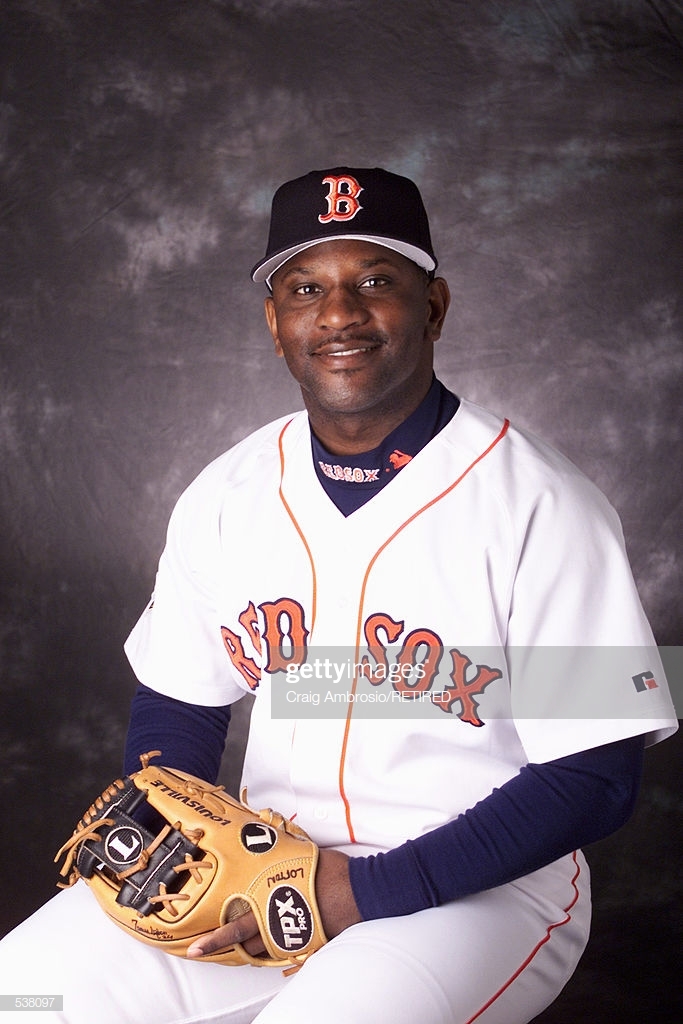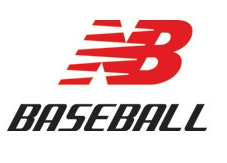For some, independent baseball marks the beginning of the end.
For James Lofton, it was the beginning of a new beginning.
Selected in the 13th round out of Los Angeles City College in 1993 by the Cincinnati Reds, the speedy middle infielder topped out at High-A in five seasons in the farm system before heading to the Western League with the Tri-City Posse, Atlantic League with the Nashua Pride and then back to the Western League with the Sonoma County Crushers to start the 2001 season.
By the time that year was over, he was wearing a Boston Red Sox uniform.
So, how does a guy who had never even been to Double-A go from indy ball to the big leagues in less than a year? The same way he’s carved out a career once his playing days came to a close that have led him to being named the new field coordinator for The New Balance Baseball Future Stars Series Powered by Program 15.
“I think it was just adapting to my environment,” Lofton told FutureStarsSeries.com
“The reason I say that is, I think the better the competition, the more I stepped my game up. It was one of those things where, the last year in Sonoma, I was more frustrated than anything because of what happened in Tri-City. Once I started there, the last year there, it was just one of those things where (manager) Kevin Mitchell stayed on me and said don’t give up. When you have family and you have kids, it’s a little different playing independent ball. But, once Boston gave me a call…it was one of those things where they liked the way I played. That built confidence. Once I got to Double-A and got around the guys and with the coaches there, it was all uphill from there.”
Lofton hit .315 in 29 games with the Double-A Trenton Thunder, and .318 in 42 more contests with the Triple-A Pawtucket Red Sox in what ultimately amounted to his last chance to become an overnight sensation nine years in the making. Despite having never been to either level before, the significance of the opportunity outweighed any concerns over being able to perform there.
“I didn’t second-guess it,” he said.
“It was one of those things where I felt like I had to put things together, like this was my last shot. That’s how I went into it…my whole game just came together. Double-A, I did well. Triple-A, I did well. I went to Mexico and did well. It was one of those things where I had a lot of things to learn from the older guys. I learned a lot going back to Nashua and even in Tri-City with a couple big league guys there and even going to Sonoma with Kevin Mitchell. When you’re around those type of guys, you learn a lot about the game; little things that you didn’t know. In Nashua, I had Butch Hobson. In Tri-City, I had Wally Backman for a while. I learned a lot from those guys, and I was able to put a lot of things together to where I just took off.”
Lofton recorded an RBI, five hits and two stolen bases in eight big-league games for the Red Sox in what would ultimately amount to his only major-league action.
“To get there meant a whole lot,” Lofton said. “Just to get to that level after going through what I’d been through for nine years…Eric Davis said it best about me, he said that when I got there, that it was just weight off my shoulders. It took a lot off of me, those eight games. So, what happens to most of the guys that get there, most of these guys have the opportunity to come back the following year as a totally different player to make the team.
“I would say my opportunity then was kind of slim with who and what we had up the middle, and that’s when I went over to Baltimore. In Baltimore, I had a shot to make the team, but that’s when I tore my Achilles, and from then on it was up and down and in and out; independent ball, Mexico and stuff like that. I started working, coaching, doing stuff when I got home. I told myself in 2006 that if I go out and do everything I’m supposed to do and I don’t get a call, I’m just going to walk away from the game because I had a job opportunity waiting for me. I did well, swung the bat well…I didn’t run like I used to, but I swung the bat well and played defense how I normally do. But, nobody gave me a call. I left all my gear to the young boys, got on a Greyhound bus and took that ride home from Corpus Christi, Texas and that was it.”
Since then, the-now-44-year-old has carved out a career for himself in a coaching role, spending the last five years as a hitting coach in the Seattle Mariners organization. It was there where he was able to keep in touch with his childhood friend Jeremy Booth, who is the NBBFSS/P15 CEO, and it was Booth who reached out to Lofton once the field coordinator position opened up.
“We’ve known each other since we were kids,” Lofton said. “We both grew up in the L.A. area, and my uncle used to work with him when he was younger…we’ve been cool ever since. We played with each other and against each other coming up for a little while. When I went places, I tried to bring Jeremy in and vice versa. It’s been a cool relationship for years.”
Booth was quick to second that.
“I have the utmost confidence in him,” Booth said. “It’s an easy choice for me, with someone who was willing to work aggressively and closely with players and somebody who can organize the staff a little bit with who needs to go where and what organization needs to hear what. He’s a three-time teammate, so you build up that trust. (Seattle, got him a job). There’s been a relationship of, when I needed a job he helped, and when he needed a job I helped. That wasn’t because of friendship – although that was part of it – that was because of trust and confidence.”
There’s also a confidence that Lofton brings in discussing his path to success – shy as he is to speak about himself – that will be a good fit in the P15 family, especially in how it translates to helping the kids he’ll be working with.
“When it comes down to it, when guys are questioning what you can do and how you can do it about the work you have to put in as a player and even as a coach, you have to let them know where you came from, how you did it and how you put things together to let them know it’s not all peaches and cream,” he said.
“You can’t just field ground balls, swing the bat and think you’re going to get to the major leagues. It’s not going to happen. You’ve got to put in some work, like with this. I’m eager to do it. It’s something different. Being with the Mariners for the last five years, it’s one of those things where you’re doing little things outside of baseball doing things around kids, you miss being around that type of environment with the older boys. But, I’m eager to get it going. It’s something new with the position, but this is a game that I’ve loved, played and been around all my life. I’m sure Jeremy can guide me with some of the stuff he’s been doing, but it’s one of those things where it’s riding a bike. Once you get out there with the boys, either you want to be there, or you don’t.”
It’s very clear to Booth that Lofton not only wants to be here, but that the drive that took him to the big leagues will carry him far in this new role as well alongside other like-minded people.
“I think he fits the rhythm here of guys that we have,” Booth said.
“James had that path, Ken Harvey didn’t have a place to go to college in his senior year and got to Nebraska through a phone call, Steve Randolph signed as a hitter and turned himself into a pitcher for 19 years, Danny Ardoin and Chad Moeller were seen as afterthoughts and had long careers, Tony Miranda went the JC route, went on to Division 1 and won a ring, played in an organization and his time was cut a bit short with the Royals but continues to battle, and then I guess there’s me. What this tells me is, through my path, I’ve made some good relationships and met some good people. The commitment to something bigger is pretty evident across the board, whether it’s Mike Eaglin, Sean Travers, Randolph, Chad, James, Kenny…everybody’s looking every day for their niche, and to be able to have those relationships is what’s most valuable personally. Professionally, it’s good to have guys in place where I can close my eyes and know that what I want to see done is going to be done, and that’s not something that’s been there since the beginning. There’s always been something that’s been back-biting or sniping or disruptive. And we don’t have that now.”
- Looking Back: 2017 Future Stars Series International Week - November 3, 2025
- ASHMORE: 5 Underclass Elite hitting standouts - October 22, 2025
- ASHMORE: 5 Main Event hitting standouts - October 15, 2025












